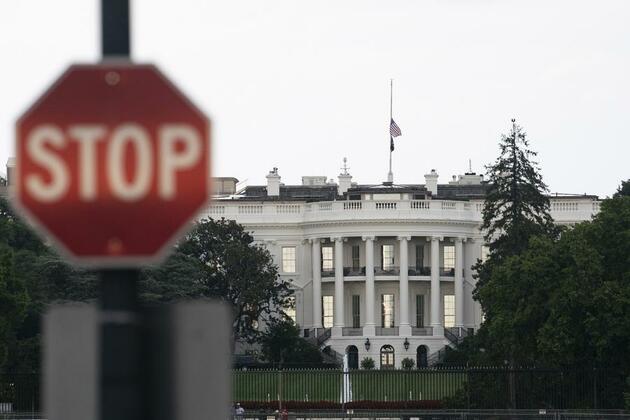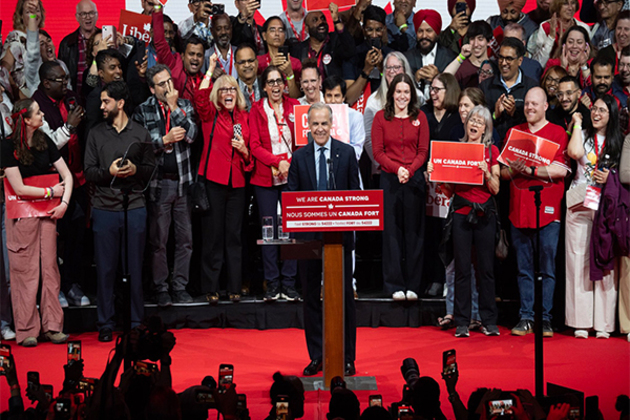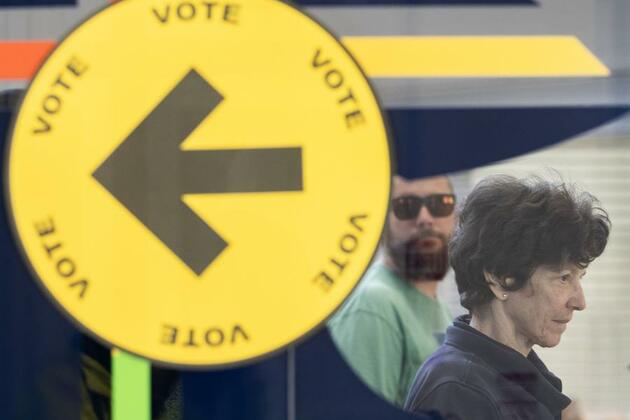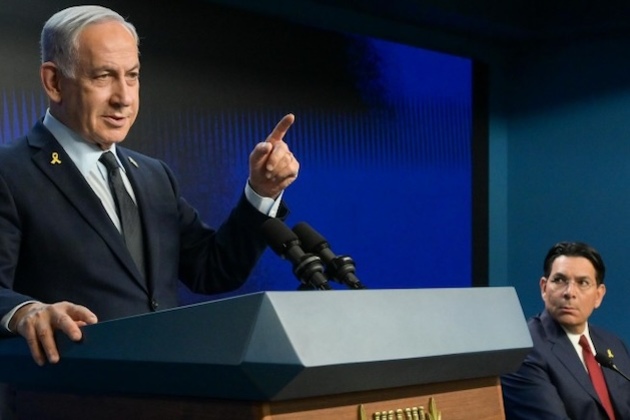Economic Watch: U.S. tariff tsunami wrecks disproportionate havoc on African economies
Xinhua
30 Apr 2025, 17:15 GMT+10

Being subject to high "reciprocal tariffs" in a limited trade with the United States is making African economies more vulnerable, revealing the disproportionate impact of the U.S. tariff policy.
ADDIS ABABA, April 30 (Xinhua) -- Lesotho, a small southern African country and one of the world's least developed countries, is facing grave concerns after U.S. President Donald Trump imposed a 50 percent "reciprocal tariff" on it.
The move threatens Lesotho's economy, which is heavily dependent on textile exports.
The U.S. tariff policy has triggered widespread criticism and caused economic turmoil worldwide. For Africa, home to 33 of the world's 46 least developed countries, the impact poses a significant threat to their development and industrialization.
Most African economies are still in the early stage of development, with limited diversification and resilience to external risk, especially given their reliance on exports.
Being subject to high "reciprocal tariffs" in a limited trade with the United States is making their economies more vulnerable, revealing the disproportionate impact of the U.S. tariff policy.
Critics, including U.S. media, have called the U.S. "trade loss theory" untenable and absurd, saying Lesothans spend only 3 U.S. dollars per person a year on U.S. goods and services, not because they are taking advantage of the country, but because they have no money.
Carlos Lopes, former executive secretary of the United Nations Economic Commission for Africa, said Lesotho exports over 50 percent of its garment products to the United States, adding that the tariffs will inflict severe pain on its garment processing industry, a key economic pillar, leading to declining exports, factory shutdowns and massive job cuts.
Noting that African economies have worked hard to integrate into global value chains under the framework of a rules-based international trading system, Lopes said that countries such as Madagascar, Lesotho and Kenya "find themselves penalized," as they have developed export-oriented sectors such as apparel, textiles, light manufacturing and agro-processing, all of which are highly vulnerable to tariff shocks.
Newcomers in the lower rungs of industrialization, after years of donor-supported economic liberalization, are being blindsided by a tariff measure that was applied without regard for development levels, he added.
South Africa's automotive sector, which accounts for 22 percent of its total exports to the United States, is among those hardest hit by separate tariffs on foreign-made cars.
U.S. tariffs will have a series of negative economic impacts on African countries. Falling export earnings lead to a reduction in foreign exchange reserves, placing downward pressure on national currencies. The depreciation, in turn, makes imports more expensive, driving up the cost of living in affected countries.
Meanwhile, African countries' ability to pay debts will also be hampered due to declining export earnings and worsening economic outlooks, possibly triggering sovereign credit crises, and further weakening the ability of governments to fund development projects.
The potential impact goes further beyond immediate trade disruptions. U.S. tariffs create difficulty for African enterprises to accumulate the capital needed for technological upgrading and industrial transformation through exports. As a result, Africa's industrialization process is being hindered, constraining it at the lower end of the global value chain.
Balew Demissie, a senior consultant at the Policy Studies Institute of Ethiopia, warned that although Ethiopia is implementing an import substitution strategy, it has yet to import key mechanical equipment to make it happen. The depreciation of its currency will undoubtedly increase costs and hinder its efforts to move up the industrial chain.
Facing uncertain U.S. trade policies, African countries are actively embracing the African Continental Free Trade Area deal, which aims to promote intra-African trade and investment by eliminating internal tariff barriers, establishing regional value chains, achieving economies of scale, and enhancing Africa's standing in the global trade landscape. By now, 47 out of the 55 members of the African Union have ratified the agreement.
The World Bank estimates that by 2035, this agreement is expected to help lift 30 million Africans out of extreme poverty, raise Africa's total income by 450 billion dollars, and increase the continent's exports by nearly 29 percent.
 Share
Share
 Tweet
Tweet
 Share
Share
 Flip
Flip
 Email
Email
Watch latest videos
Subscribe and Follow
Get a daily dose of Middle East Star news through our daily email, its complimentary and keeps you fully up to date with world and business news as well.
News RELEASES
Publish news of your business, community or sports group, personnel appointments, major event and more by submitting a news release to Middle East Star.
More InformationInternational Business
SectionEconomic Watch: U.S. tariff tsunami wrecks disproportionate havoc on African economies
This photo taken on Aug. 4, 2022 shows the White House and a stop sign in Washington, D.C., the United States. (Xinhua/Liu Jie) Being...
UK join US in airstrike on Houthi facility in Yemen amid Red Sea shipping threats
London [UK], April 30 (ANI): The UK's Royal Air Force (RAF) joined forces with the United States in a precision strike against a key...
Rahul Gandhi congratulates Mark Carney on election victory
New Delhi [India], April 30 (ANI): Leader of the Opposition in Lok Sabha Rahul Gandhi has congratulated Canada's Prime Minister Mark...
India ranks among top IPO markets with USD 2.8 billion raised in Q1 2025: EY Report
New Delhi [India], April 29 (ANI): India's Initial Public Offering (IPO) market continues to demonstrate resilience, securing a 22...
Explainer: What to know about Mark Carney's election as Canadian prime minister?
People wait to cast their ballots at a polling station in Toronto, Canada, on April 28, 2025. (Photo by Zou Zheng/Xinhua) Mark Carney's...
New entirely Russian-made airliner makes successful test flight
Domestic avionics, power supply, air conditioning, and other devices were tested on board the MC-21, Rostec has said The latest prototype...
International
SectionNew Mexico hosts global celebration of native and indigenous cultures
ALBUQUERQUE, New Mexico: Thousands of people are gathering in New Mexico for a big event that celebrates Native American and Indigenous...
San Francisco moves toward “recovery first” drug policy
SAN FRANCISCO, California: San Francisco is taking steps to change how it handles drug use. After Some people say focusing on quitting...
Trump signs order to boost skilled trades, shift from college degrees
WASHINGTON, D.C.: President Donald Trump signed an executive order to expand job training for skilled trades this week, shifting focus...
US SC judges question California’s power to set rigid emission rules
WASHINGTON, D.C.: This week, U.S. Supreme Court justices seemed open to letting fuel companies challenge California's strict vehicle...
US government fast-tracks energy, mining permits on federal lands
WASHINGTON, D.C.: The Trump administration announced this week that it will create a fast-track approval process for energy and mining...
Israeli prime minister hosts 80 international diplomats
JERUSALEM - More than 80 ambassadors and heads of mission from across the world were addressed by Israeli Prime Minister Benjamin Netanyahu...












